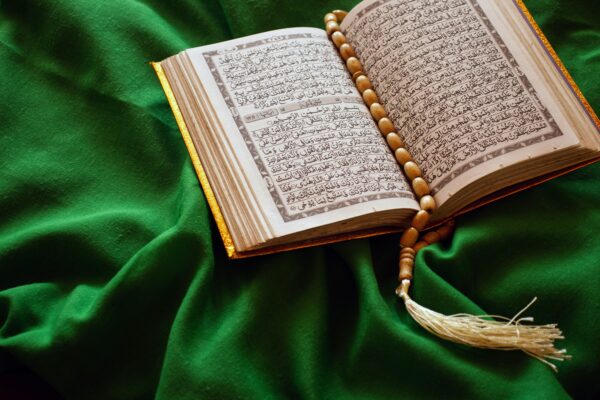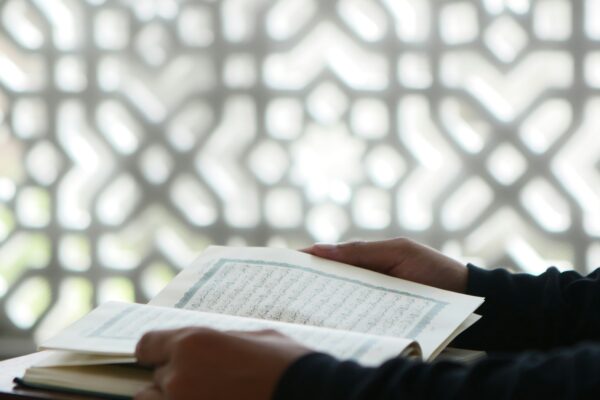Maqasid is inextricably interconnected with the politics of Islam – but why is it important to understand in our world today?
Maqasid is inextricably interconnected with the politics of Islam – but why is it important to understand in our world today?
The meaning of the expression ‘Maqasid al-Shariah’ is ‘the ultimate goals of Shari’ah’. As these goals are the objectives of the Shari’ah, trying to understand or define Maqasid independently of the Shari’ah is precarious.
The studies and discussions related to Maqasid are helpful in assimilating the diversity of the foundational principles of Islamic Shari’ah in a way that never contradicts Shari’ah itself. Sheikh Ellal Alfasi, a Moroccan political thinker and author of the book ‘Maqasid al-Shari’ah al-Islamiyah wa Makaarimuha’, introduces Maqasid in two ways. One is ‘Maqaswid shariah al-Islamiyyah’. It refers to the fixed values and goals of Islamic Shariah. The second is to develop Maqasid to the level of a critique of colonial, modern, and liberal values. It refers to the ability of Islamic Shariah to remain independent and to face changing socio-political contexts.
Five things that must be preserved
Imam al-Juwaynī and Imam Ghazzali introduce religion, life, lineage, intelligence, and wealth as the five things that must be protected. Shaykh Ahmed Raissouni, the Chairman of the Global Scholars’ Association and a researcher specialising in ‘Maqasidi’ issues, explains verses 151 to 153 of Sura Al-An’am and asserts that these five things are covered in these three verses.
Summarising the teachings of Imam al-Juwaynī, Imam Ghazzali (RA) classifies the Maqasid in order of priority: Essentials (daruriyat), necessities (hajiyat), and adornments (tahsiniyat). Simply put, Fiqh al-Maqasid is concerned with bringing about maximum welfare (maslaha) and preventing harm in human interpersonal life. Observing the priorities and trying to enact each one is the need of the hour.
Maqasid is inextricably interconnected with the politics of Islam. Faced with the question of what is between religion and politics, the prominent Tunisian scholar Nuruddin Khadimi says: ‘The subject of politics is well-being, and well-being is the subject of Maqasid.’ Thus, proper political action is the pursuit of the all-round welfare of the individual, the family, and thus the society. Even if we define ‘politics’ as relating to the state and the relationship between the ruler and the governed, politics is ultimately the pursuit of the well-being of life.
What is important is the discussion on how it can be dealt with in Shariah. Sherman Jackson’s observation on the place of revelation in human life is relevant here. He develops his concept within the dichotomy of ‘Shariah’ and ‘non-Shariah’. What is meant here is not the religious or non-religious aspects of life. For example, driving license age. It would be of great benefit to assign a definite age to it; many evils will be prevented. Traffic rules are the same. Jackson calls these areas ‘Islamic secular’ where revelation has not intervened definitively.
Alija Izetbegovic’s categorization of visions into ‘religious’, ‘material’, and ‘Islamic’ is memorable here. ‘Islamic’ exists as an ethical framework even in the seemingly material realms of life. What matters here are broad areas of life in which stances can be arrived at from an ethical framework not precisely determined by revelation, but made possible by revelation itself. While ‘Islamic politics’ offers some ‘Islamically’ defined foundations, it also leaves plenty of space that is neither religious nor anti-religious in the overarching sense.
Application of reason is limited where it is established by revelation (here, revelation is not viewed as irrational but, beyond the ‘rational’). What is the idea that become clear when the Prophet (pbuh) said, ‘You are the most knowledgeable about your material things’ regarding the pollination of the date palm? It calls for objective and intelligent investigations. To be ‘Islamic’, there is to exercise intellect and thought within its ethical and epistemological framework. That is where seeking expert advice to identify what brings benefits and what brings hardship comes in handy.
Dr. Yusuf al-Qaradawi has described his methodology as ‘rigorous in fundamentals(asl) and simplistic in sub-matters (fara’)’ (Atashdeedu fil uswul wataysiru fil furu’). Shariah provides heavens of ease for the sub-matters while establishing them firmly at the roots.
It is in the remembrance of the divine presence that every person becomes moral and ethical. That is how he becomes the caliph of Allah. The community of such persons is the good Ummah (Khairu ummah) raised for the people, enjoining good and forbidding evil. They are the mediocre Ummah (Ummat Wasat) who bear witness to the truth.
The primary foundation of Islamic polity is the recognition of, submission to, and absolute obedience to the sovereignty of Allah. Along with justice, mutual cooperation, respect, brotherhood, freedom etc., introduced by Sheikh Yusuf al-Qaradawi and others as high social values are the ideas that should serve as pillars of Islamic politics. All of these should be conceptualized according to the Holy Qur’an and the Holy Sunnah, which are the highest sources of the believers (Al Marjaiyatul Ulya).
Discussions about Islamic politics are taking place today in the age of nation-states, a product of modernity. Shaykh Ahmad Raissouni takes the nation as a medium/means (waseela). Systematic and just administration should really be the goal. A change in means is possible for that course. New doors of Islamic politics must be opened by recognizing the structural violence that the state creates and is likely to create.
That is what the Qur’anic verses that explain the creation of mankind and its goals underline. The Holy Qur’an says: “O men! Fear your Lord Who created you from a single being and out of it created its mate; and out of the two spread many men and women. Fear Allah in Whose name you plead for rights, and heed the ties of kinship. Surely, Allah is ever watchful over you.” (4:1).
Here humans are evolving as a single race. Explaining the Qur’anic verse “I created the jinn and humans for nothing else but that they may serve Me” (51:56) and “Who created death and life that He might try you as to which of you is better in deed. He is the Most Mighty, the Most Forgiving “(67:1), Shaykh Raissouni observes that these verses refer to the Maqasid of human life.
At the core of Islamic polity is a social system that is sound, benevolent, just, and above all welfare-oriented. Appropriate means are therefore essential to accomplish that goal. The aim and interest of Islamic politics is welfare in this world (salahiyat) and success in the hereafter (falah). In the explanation of the Most Merciful (Rahman) and Merciful (Raheem) among the holy names of Allah, ‘Rahman‘ refers to the mercy of Allah that surpasses all in material life. ‘Rahim‘ is a special mercy available to the believer.
These practices imply that the practice of Islamic politics should be possible by ensuring the overall well-being of human beings. The Holy Qur’an’s answer to the prayer of Prophet Ibrahim (A.S.) to provide security and resources to the believers breaking all the communal stereotypes is obvious! (2:126).
At a time when the state is depriving the privacy of the individual, exercising excessive power and nationalism is turning violent, the topically sensitive study and research is what the new age demands from the Muslim community.
References
Maqasid al-Shari’ah al-Islamiyah wa Makaarimuha, Ellal Alfasi,2009.
‘Literalism, Empiricism, and Induction: Apprehending and Concretizing Islamic Law’s Maqasid al-Shari’ah in the modern world’, Sherman A Jackson,University of Southern California, January 2006.
Islam Between East and West, Alija Izetbegović , Islamic Book Trust & Other Books, Calicut,2013, ISBN:9789380081359, 9380081359
Islamic Awakening Between Rejection and Extremism, Dr. Yusuf al-Qaradawi
Quran 4:1, 51:56, 67:1, 2:126





